#zhang songwen
Text
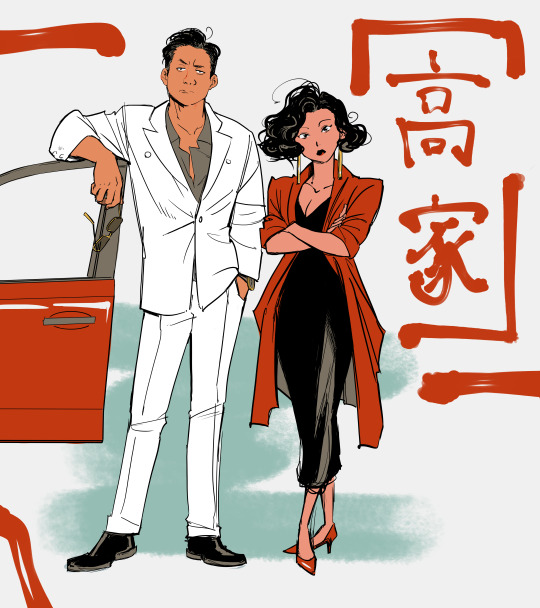
Still on the 狂飙 train, please send help.
Gao Crime Family
#高启强#狂飙#张颂文#Zhang SongWen#The Knockout#Gao QiQiang#art#manga#digital art#myart:fanart#c drama#chinese#chinese actor#chinese drama#cdrama fanart#cdrama#cdrama 2023
33 notes
·
View notes
Photo

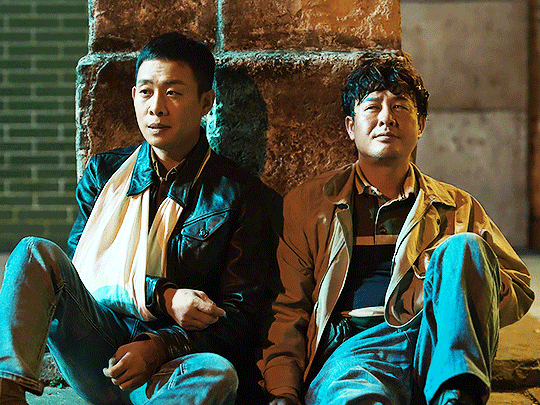
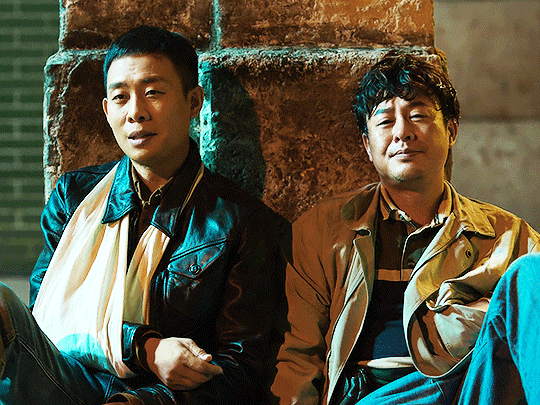
Zhang Yi as An Xin and Zhang Songwen as Gao Qiqiang in THE KNOCKOUT | 狂飙 ep 11
#the knockout#狂飙#chineseartistsinc#asiandramanet#cdramasource#cdramaedit#dailyasiandramas#zhang yi#an xin#zhang songwen#gao qiqiang#cinematv#cinemapix#userthing#smallscreensource#filmtvcentral#tvfilmsource#cdrama#theknockoutedit#userkunedits
59 notes
·
View notes
Text
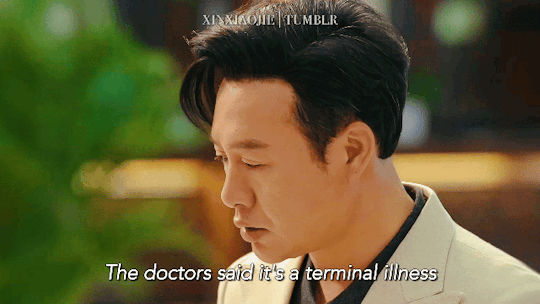


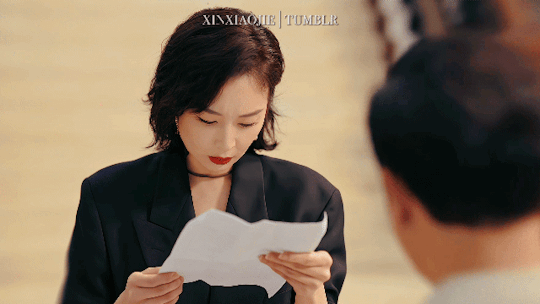
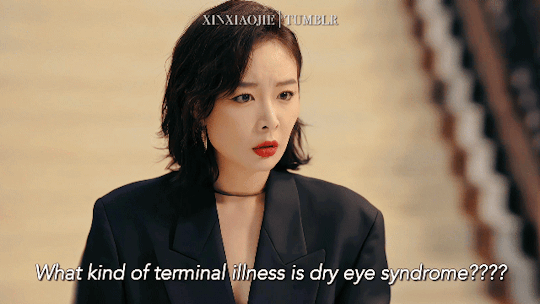
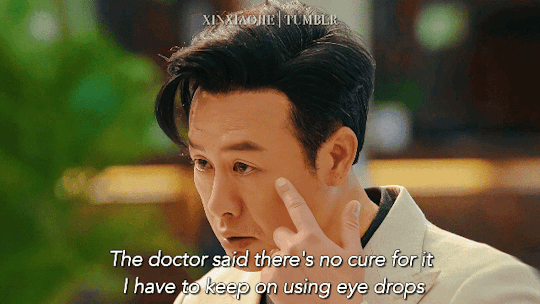
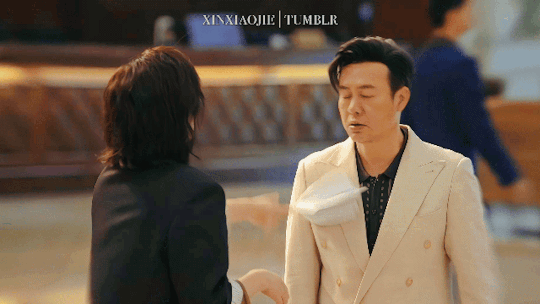
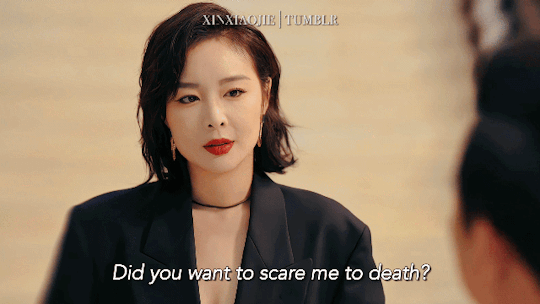
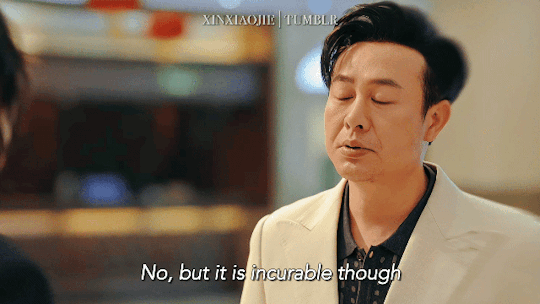
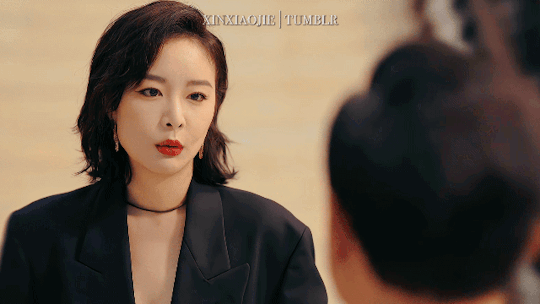
Laopo, I was thinking if you didn't come home with me, I'd have to just pick up trash here 🥺
狂飙│The Knockout
#狂飙#the knockout#kuang biao#chineseartistsinc#asiandramasource#dailyasiandramas#cdramasource#chinesemedia#cdramaedit#cdramanet#cdramagifs#chinese drama#cdrama#caps#zhang songwen#gao qiqiang#chen shuting#gao ye#ep31#this scene was kinda cute and funny 🥺🥺😂😂😂😂#can we talk about shuting's outfit and hair????!!!! hello!!!!!!!???? no wonder gao qiqiang is saojiao-ing to get wife back
38 notes
·
View notes
Text




The director, producers and cast of The Knockout - Zhang Songwen, Gao Ye, Li Yitong and more for Harper’s Bazaar China x 2023 iQIYI Scream Night
6 notes
·
View notes
Photo
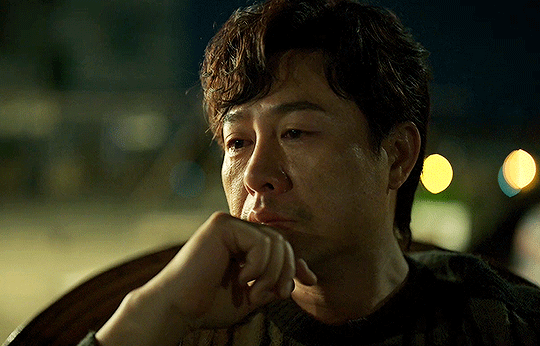
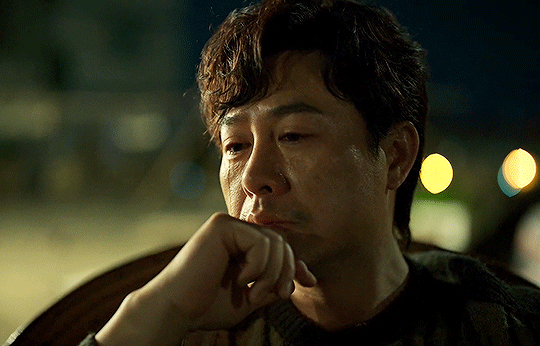

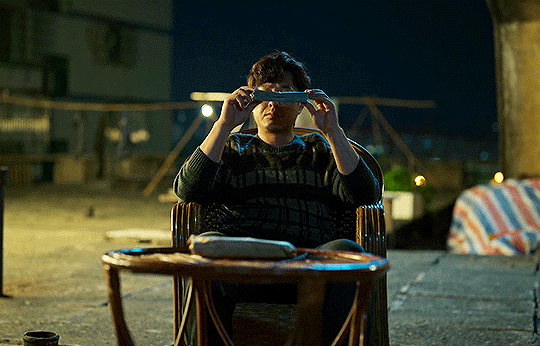
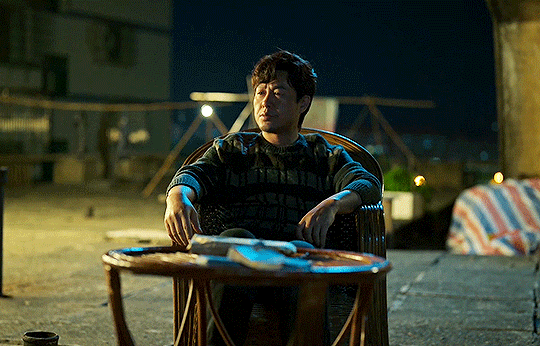
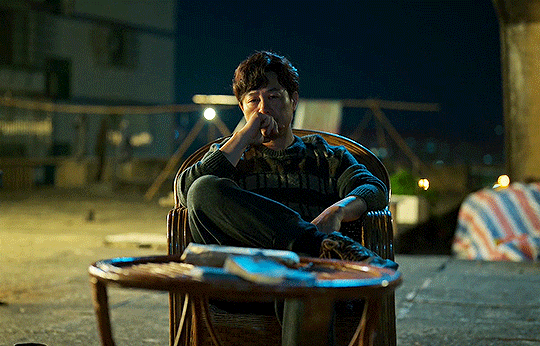
Gao Qiqiang sat as the two stacks of money lay on the table. He stared at them for moment. A single tear rolled down his cheek. He picked them up and carefully examined them. These small stacks. a person's life was only worth these small stacks.
He understood that someone had died today. Other than the two unlucky fellows who died in the pond, that scrupulous and cowardly Gao Qiqiang, that Gao Qiqiang who struggled to earn a living for decades, that Gao Qiqiang who never cared for his own dignity also died today. He pondered, he lamented, he paced at the line separating good and evil.
The next day, the brilliant sun illuminated the earth, but Gao Qiqiang's sun never rose again.
—鹅城县长手里那茶缸
#狂飙#the knockout#cdramanet#cdrama#zhang songwen#my gifs#my edit#张颂文#qiang ge has reached the point of no return#i love this comment from a fanvid#so i tweaked it a bit and translated it
25 notes
·
View notes
Text
Di ba ge xian yi ren
Di ba ge xian yi ren (2023)
#JonathanLi #ChengpengDong #KaTungLam #SongwenZhang #XiQi #SunnySun #YaoChang
Mehr auf:
第八个嫌疑人 / Dust To Dust Jahr: 2023
Genre: Krimi / Drama
Regie: Jonathan Li
Hauptrollen: Chengpeng Dong, Ka-Tung Lam, Songwen Zhang, Xi Qi, Sunny Sun, Yao Chang, Yanqing Liu, Zhankui Liu, Shengjie Shao, Jianbing Wang, Zichen Wang …
Filmbeschreibung: Im Jahr 1995 ereignete sich in Guangdong ein großer bewaffneter Raubüberfall, bei dem fünf bewaffnete Räuber einen Geldtransporter überfielen und…
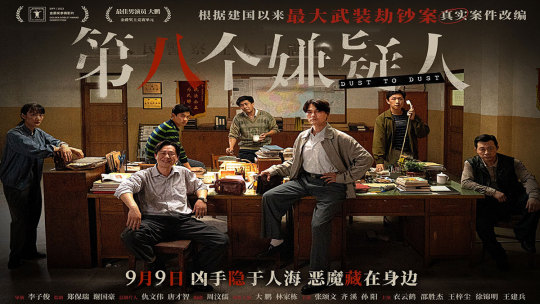
View On WordPress
0 notes
Note
I was intrigued by your insane drama ramblings so I googled the knockout and the description on mydramalist just doesn't make any damn sense (compels me though) can you summarise the plot lol
granted, i am only on episode 12 and also it is still airing (there are 10 episodes left i think; 29 have already been broadcast)
The mydramalist summary does seem rather confusing but I'm guessing that's because there's a modern day frame narrative device. The first few episodes (the one I've been watching) take place in 2000, 20 years in the past.
This is not a spoiler because it's mentioned in the present day stuff from the very first few episodes but the character Gao Qiqiang (Zhang Songwen) becomes a crime boss in the future, although we meet him in the show when he's just a street vendor who sells fish. The other lead character is a cop named An Xin (Zhang Yi) who's that typical sort of character with a passion for justice and doing the right thing and all that.
In the arc I've watched so far, it's basically been a crime drama with mystery and police corruption (the usual), plus Gao Qiqiang's descent into crime :)c Can't summarise that much more because I've yet to finish the show but it's definitely my cup of tea. I started watching it because I kept getting videos of it recommended on douyin a few days ago:
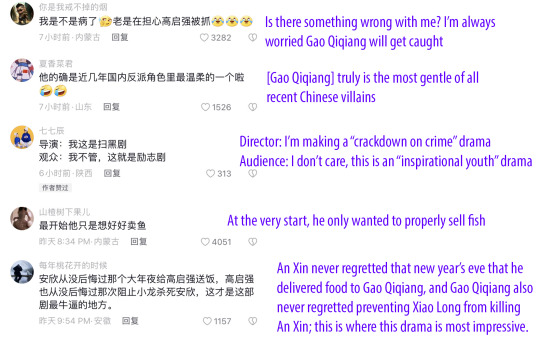
consider this my sales pitch
127 notes
·
View notes
Text
Lingshan Hermit: Clever Selfishness
I have always loved Cantonese cuisine because of its proximity to Hong Kong and because I read many articles about eating in Guangzhou when I was little. So in my childhood impressions, it has always been a gourmet paradise, an impression that continues to this day. Living in the north, it has always been very difficult to encounter authentic Cantonese restaurants until recently when I discovered several relatively authentic Cantonese restaurants that deliver food. This reminds me of a Cantonese businessman friend I met ten or twenty years ago. At that time, he would often stay in Beijing for a period of time. When he was in Beijing, he would come to me to ask some questions about Buddhist teachings, and we would talk about many topics, from how to make Cantonese-style morning tea to anecdotes about Buddhism in Guangdong and Hong Kong. Once when we were having tea, he told me about something that happened to him. In 2003, he made a donation to sponsor the construction of Buddha statues at a large temple, but due to some objective reasons, he did not want to make his name public. After making the payment, he called the person in charge and asked them to list his name as "Anonymous Donor". In the past, this is what he often did, and the other party readily agreed every time. But this time it was different - this time he encountered an extraordinary character. After listening to his request, the other party replied: "That won't work, how can that be okay? Listing the name for merit dedication is good so that more people know about it and more people can dedicate their merits." My friend gently said: "When I previously made donations to other temples, I always did it this way. And since I am the donor, shouldn't I have the right to decide whether to list my name or not? You should respect the wishes of the donor." But the other party still insisted with reason that the name must be listed, otherwise it would hurt Buddhism. My Cantonese friend is a civilized person and did not want to waste time arguing with her further, so he just kept silent. He is a devout Buddhist believer (a bit like Zhang Songwen), born into a family with a strong Buddhist atmosphere. Since childhood, he has been used to harmony brings wealth and seldom argues with others, nor does he really know how to. However, after this incident, every time he participated in similar merit dedications, he would first call to probe the tone of the person in charge. He was very afraid of communicating with people who were completely unreasonable.
It should be said that what he encountered was not an isolated case. Over these years, I have heard and seen enough of such eccentric people and incidents to write a book. There are actually a lot of such people nowadays, scattered everywhere. And because there are so many of them, some have inevitably made their way into Buddhist circles and even become leaders of temples in China. Some have even attained titles like "Rinpoche". And this is what worries me. Over the years I have been in contact with many such people, and from my experience, working with them can be very mentally exhausting, because from time to time they will do things that normal people would never do, shattering your worldview and opening your eyes. When interacting with others, at first, I assume that they know about the rules that all human beings should uphold - because some things don't need to be emphasized since every normal human being knows them, because in the past I hardly encountered people who didn't know these rules, because they are the common covenant that allows us to form a society - but later I realized that such an assumption is extremely foolish, because subsequent events proved that they don't know. For example, what happened to my friend mentioned earlier, the normal procedure would be for the donor to make a request, and the other party would say "Of course, thank you very much for your donation and dedication." - This is the normal procedure. But in reality you have to be prepared that some eccentrics have already infiltrated and taken root in Buddhist circles, and they can make a move at any time, leaving you dumbfounded at any time. Having seen so many such incidents, you will find that in some parts of China, people there have something in their culture that makes them go to every possible length to create trouble for you. I think they probably do this to assert their own existence; they never harm others, they seem to have never received any education on "being adaptable with others and yourself"; they enjoy that sense of power when saying "no". If you encounter enough such people, in the end you can only assume that every person you meet does not know these common basic rules of human society. You can only assume that the other party will react beyond what is normal at any time. You can only explain everything clearly in advance beforehand - explain even those things that every normal person knows, down to every detail - I think this seriously lowers the level of human civilization to some extent. And such people live among us, claiming to be Buddhists, our Dharma brothers and sisters, but in them, you can only see ideas that are completely opposite to those of Sakyamuni Buddha. Some of them claim to have practiced for many years, completed several retreats, yet they still don't know what human beings should and should not do, and they still don't know how normal people do things. (Maybe some of them do know, but they take pride in not doing so.)
So I have always wanted to know, those people who can park their cars on the train tracks when buying groceries, those who can self-righteously demand an apology from the girl they have harassed by taking a little boy into the women's restroom, those who think that they have never done anything wrong despite chanting Vajrasattva repentance every day - I have always wanted to know how such people go about learning the Buddhadharma and Vajrayana, how they use their views and actions which are completely contrary to those of Sakyamuni Buddha to practice what Sakyamuni Buddha taught. In fact, I believe this makes it completely impossible for them to practice. I am quite certain that it is precisely those things that are contrary to the Buddhadharma that make them not know how to be a proper human being or get things done, and those things not only prevent them from knowing how to be a person and get things done, but also make their Buddhist practice completely invalid.
To change this situation, they should first go to Confucius' human studies class to learn something, which would be very helpful for them. In my opinion, what Confucius always taught was clever selfishness, while selfishness for most modern people belongs to the stupid kind of selfishness. We are all ordinary beings, and for a considerable period of time in the foreseeable future, we will continue to be ordinary beings. We cannot suddenly become Buddhas; we cannot suddenly become unselfish. Even less can we practice without greed, anger and ignorance. But at least you can learn what clever selfishness is. Clever selfishness means that while you are selfish, you also do not make others resent you, whereas stupid selfishness does just the opposite. Clever selfishness is the best kind of selfishness that an ordinary being can accomplish. The clever selfish person considers others, because the clever selfish person knows that if you completely disregard others, the one who eventually gets hurt will be yourself. Those clever selfish people, if they have a cake, will take out three quarters of it to give to others, so that they can at least keep one quarter; while those stupidly selfish people want to have the whole cake. They completely disregard those hungry eyes around them. The end result is that their cake gets snatched away by others. If you don't know how to be cleverly selfish, you'll end up like those people mentioned earlier, creating endless troubles for yourself and others and messing everything up in the end. I have always believed that Buddhadharma cannot be practiced by everyone. One must possess a certain level of civility in order to practice the Buddhadharma, while Confucian culture is a very good foundation for the Buddhadharma.
Due to modern education, many people feel that Confucius represents a backward culture that restricts human nature and is the enemy of freedom. I don't know if what Confucius taught restricts human nature, but over the years I have seen how many people without Confucian teachings step by step bring about their own downfall, how they step by step put themselves in hopeless situations, while those with some Confucian teachings do very well and excel in other aspects too. Sometimes I would think, if these people were not born in such a place, if they were born in a region with traditional Confucian culture, then their lives and their Buddhist practice might have been completely different.
Regarding Chinese traditional culture, an analogy I often use is: If you give an iPhone 14 to a primitive man, he probably won't be very grateful to you, because he will feel that this thing is completely useless. He neither knows how to use an iPhone, nor has anywhere to charge it. In his eyes, this gadget is not as useful as an arrowhead made from grinding stones. To him, stones represent a more advanced culture that can be used to crack walnuts and grind into arrowheads for hunting, while the iPhone is just a flat black stone that can neither crack walnuts nor be tied to a stick as a weapon. So he would feel that what you gave him is a completely useless thing. You can see that for primitive people, the iPhone is too advanced, far beyond what they can understand. They have no idea how to use it, so to them it is useless and backwards. Do you know? This is exactly what has happened to Chinese culture and to the teachings of Sakyamuni, Laozi and Confucius. Because their teachings are too profound, too complex, completely beyond the comprehension of ordinary people, and the effects manifest very slowly, only suitable for personal realization through self-cultivation and self-liberation. Therefore, after having experienced Western culture, many Chinese people feel that those Western cultures that have rapid tangible effects and can be quickly understood and put into practice by ordinary people are the truly useful things.
But are the traditional teachings really useless? After being looked down upon for over a hundred years, we can actually all see and feel it - if there were no sage teachings, what would your surroundings turn into? It would turn into what it is like now - now most people will not admit mistakes anymore no matter how absurd, ridiculous or lowly they are wrong; a person takes a young boy into the women's bathroom to harass others and still self-righteously demands an apology from the harassed person; a person parking their car on the train tracks when buying groceries; someone who chants Vajrasattva repentance every day believes that they have actually never done anything wrong. Over these years I have seen far too many such people. They completely do not know their own position - they neither know their own position nor other people's positions. This causes them to frequently do all kinds of ridiculous things. If a person does not know who he himself is, does not know what role he should play in everything, then he would not know what he should say or do. He would say what he should not say and do what he should not do, and then everything would go wrong. When things go wrong they blame others, believing that the problems are all caused by others. Such people are completely oblivious about self-reflection. They are born in places without a culture of self-reflection. Looking in a mirror they would even think that the mirror is slandering them. If you do not know your own position in one matter, then in fact you would not know your position in all matters - it is like a net, when one place is pulled, all other places would also be out of place. A person who has problems with their understanding of marital relations will inevitably also have problems with their understanding of guru-disciple relations, because it is of one fabric. If your worldview is wrong then all the thinking, ways of doing things, speech arising from it would also all be wrong, because your underlying basis is wrong. You cannot use a wrong underlying basis to uphold right view. If you want to cultivate right view, then you must possess the correct foundation.
Over these years I have seen many people, most of whom neither know nor understand that the pain and tragedies in their lives stem from their wrong perception of self. I have always believed that this is a disaster of values, a disaster far more serious than earthquakes, tsunamis or wars, because it lurks within most people, because it will continue into your next and next lives, harming you life after life.
Written by Lingshan Hermit on February 10, 2023, first published on February 21, 2023.
灵山居士:聪明的自私
2 notes
·
View notes
Text
A knockout success in TV drama highlights a trend toward realism
A knockout success in TV drama highlights a trend toward realism
Television viewers were surprised recently when Su Xiaoding, Lin Jiachuan and four other actors who play villains in the TV series "The Knockout" begged the pardon of fans and said they really weren't bad guys in real life.To get more news about the knockout chinese drama, you can visit shine news official website.
That they seemed so real on screen is testament to some of the grittier fare on television, where series are focusing more on real life, both historical and contemporary, and attracting enthusiastic audiences.
"The Knockout" is rooted in China's national campaign to crack down on gang crime. Some viewers have even suggested, tongue in cheek, that police "investigate" actor Zhang Songwen, who plays criminal lord Gao Qiqiang in the series so realistically that it seems he's not acting at all.
Gao's favorite book in the series, "The Art of War" by ancient Chinese war strategist Sun Tzu, has enjoyed a surge in sales with the overwhelming popularity of the series.Young people seem drawn to drama that is a stark contrast to the once commonplace boring, insipid TV fare.
"My classmates and I have really enjoyed the new drama, which is a big departure from the normal, mainstream stuff," said college student Chris Yu. "The storytelling is creative, with its overlapping timelines and flashbacks, and all the characters are multifaceted and interesting."
The 39-episode "The Knockout" began airing on China Central Television and iQiyi last month. It was simultaneously released overseas in subtitles of eight languages for viewers in North America, Europe and Southeast Asia.
Inspired by true events, the drama centers on two decades of interaction between a gang boss and a police officer that began when the gangster was a humble fishmonger and a friend of the cop. However, they finally become foes, and the drama follows their years of cat-and-mouse struggle.
Through varied timelines, the drama is set against the backdrop of China's tremendous social transformation and progress in legal reforms.The series is apparently popular overseas as well. Rickshaw drivers in Thailand have been known to play excerpts of "The Knockout" and its theme song, trying to attract the business of Chinese tourists. On some websites in Japan, the drama is also a trending search topic.
The iQiyi Research Center said the show has broken a two-year popularity record previously held by the comedy costume drama "My Heroic Husband." "The Knockout" is also the most-watched drama on CCTV Channel 8.
On the leading film and TV review website Douban, more than 600,000 viewers give the series an 8.5 out of 10 rating.
The series is shot on location in the city of Jiangmen in Guangdong Province, which is also attracting visitors eager to sample local delicacies such as rice rolls and pig's-feet noodles that are featured in the drama.Industry professionals are closely watching the success of the drama and contemplating its repercussions, both for television and for spill-over effects such as tourism.
Dai Ying, senior vice president at iQiyi, said that the drama sets the bar higher for production of high-quality contents in the genre.
The production team spent three years on the series. Director and scriptwriter Xu Jizhou said in a media interview that "The Knockout" is not simply a story about fighting crime, but also a reflection of social evolution this century.
"We needed to do a lot of interviews and research to recreate the realism of the era," director Xu said. "Audience can obviously see the changes of sets, makeup, costumes and props that reflect changing styles over the years."
1 note
·
View note
Text
Festival de cine de Beijing
Se inaugura el XIII Festival Internacional de Cine de Beijing La decimotercera edición del Festival Internacional de Cine de Beijing se celebra este año del 22 al 29 de abril. Este es el primer evento cinematográfico internacional que se celebra de forma completamente presencial en 2023. Quince películas preseleccionadas competirán por los premios Tiantan. Veamos más detalles con nuestra reportera Luo Huan.
El sábado, 22 de abril, abre sus puertas la decimotercera edición del Festival Internacional de Cine de Beijing. Después de 3 años de lucha contra la pandemia, los actos vuelven a celebrarse de forma presencial. Tailandia es el país invitado de honor del certamen de este año. La ceremonia inaugural del Festival se lleva a cabo cerca del lago Yanqi, en el distrito de Huairou, en Beijing, reuniendo a más de 200 cineastas chinos y extranjeros en la alfombra roja.
Este año, el Festival recibió cerca de 1.488 filmes de 93 países y regiones, cifra récord del certamen. Un total de 15 han sido preseleccionados para competir por las diez categorías de los prestigiosos premios Tiantan. Cuatro de las cintas a competición están dirigidas por realizadores latinoamericanos: “Adiós, Buenos Aires” por Germán Kral, de Argentina; “El Castigo”, una coproducción chileno-argentina dirigida por Matías Bize, de Chile; “Tótem”, una coproducción entre México, Dinamarca y Francia con la mexicana Lila Avilés como directora, y “To Catch a Killer” por el director argentino Damián Szifron.
La película inaugural del festival es “Beijing 2022”, la cinta oficial de los Juegos Olímpicos de Invierno de Beijing, producida por Zhang Yimou y dirigida por Lu Chuan. El mismo Zhang Yimou, director de las célebres “Linterna roja” y “Sorgo rojo”, entre muchas otras, preside el jurado de los premios Tiantan de este año. Estará acompañado por Fernando Juan Lima, presidente del Festival Internacional de Cine de Mar del Plata, Argentina; el director chino de Hong Kong Stanley Kwan; el director israelí Nadav Lapid; la directora tailandesa Pimpaka Towira; el actor chino Zhang Songwen y la actriz china Zhou Dongyu, quienes desvelarán, el 29 de abril, los ganadores de los premios Tiantan.
El Festival cuenta con nueve secciones temáticas, siendo la más esperada por el público el Panorama Cinematográfico de Beijing. Más de 180 filmes de diferentes países, géneros y estilos se proyectarán en 27 salas de cine y teatros de la capital china. El 18 de abril, a los pocos minutos de ponerse a la venta, las entradas para las películas más populares se agotaron rápidamente. No cabe duda de que el Festival Internacional de Cine de Beijing está transmitiendo una clara señal de recuperación para el mercado cinematográfico de China.
#redcontactosur
https://www.tiktok.com/@redcontactosur/video/7226031114811411717?is_from_webapp=1&sender_device=pc&web_id=7129876716743853573
0 notes
Photo

Bad movie I have Legend of the Fist : The Return of Chen Zhen 2010
#Legend of the Fist : The Return of Chen Zhen#Media Asia Films#Donnie Yen#Qi Shu#Anthony Chau-Sang Wong#Bo Huang#Ryu Kohata#Siyan Huo#Zhou Yang#Shawn Yue#Yasuaki Kurata#Akira#Yue Ma#Jiajia Chen#Songwen Zhang#Gregory Wong#Ikki Funaki
5 notes
·
View notes
Text
so the nominations for the magnolia awards are finally out. the bad news is three-body didn’t get any acting nominations even though wang ziwen was a fan favourite for the best actress category. there was also a lot of hope for zhang luyi to be nominated. but you know, since zhang songwen, who was so highly praised by every living being for his performance in another show, didn’t even get a nomination, i’m like...meh whatever...
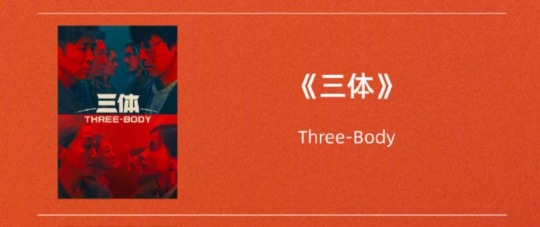
but the good news is that we still got 5 nominations:
three-body for best tv series
yang lei for best director
tian liangliang for best adapted screenplay
three-body for best cinematography
three-body for best art direction
i didn’t get the energy to fact check this, but some people are saying the best actor award and best tv series are almost never for the same series in magnolia awards, so it’s likely that three-body is going for a win as the best tv series, which is going to be something that every cast and crew can be proud of.
(honestly i just want to see zhang luyi coming out of hibernation lol; btw did any of you see yu hewei at the huabiao awards?)
#三体#three body#cdrama#the magnolia awards#白玉兰奖#yang lei#tian liangliang#my stay in beijing will be a lot longer than i planned so bear with my absence (not that anyone cares xD)#i haven't gotten over this show yet#i hope i can at least make something for zly's birthday next month#but i don't have my extra monitor here and my laptop's monitor sucks for coloring#three body problem#the three body problem#kunsposts#3 body problem
17 notes
·
View notes
Text
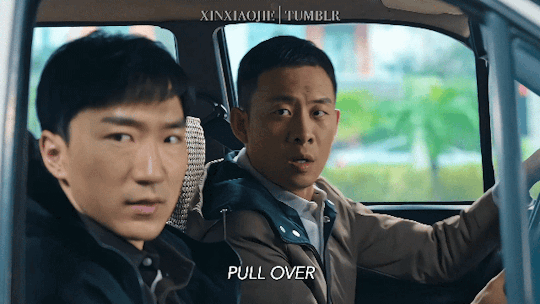

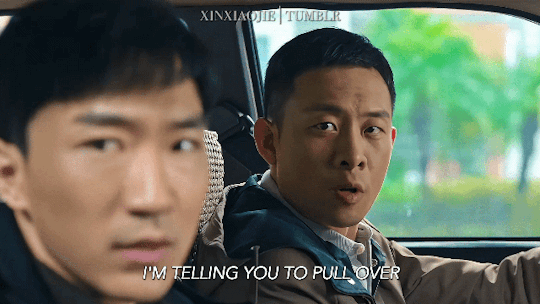
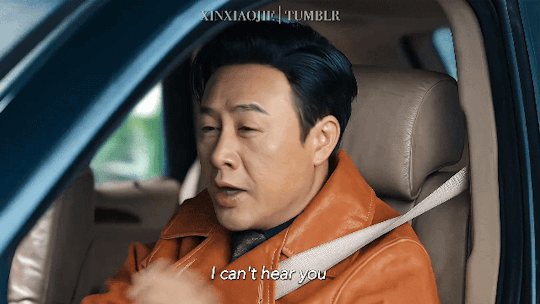
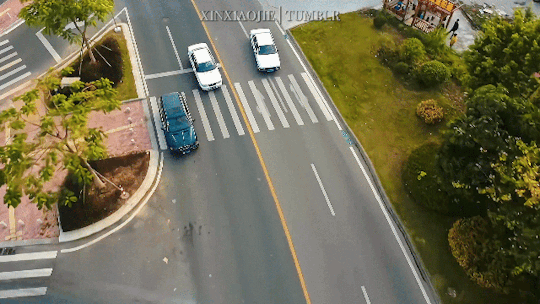


...and he did not pull over
狂飙│The Knockout
#狂飙#the knockout#kuang biao#cdramasource#asiandramasource#chineseartistsinc#dailyasiandramas#chinesemedia#cdramaedit#cdramanet#cdramagifs#chinese drama#cdrama#caps#an xin#zhang yi#gao qiqiang#zhang songwen#ep18#the interactions between these two is spectacular 😂😂😂😂 any time a cop tell a criminal to stop and they never do
23 notes
·
View notes
Text

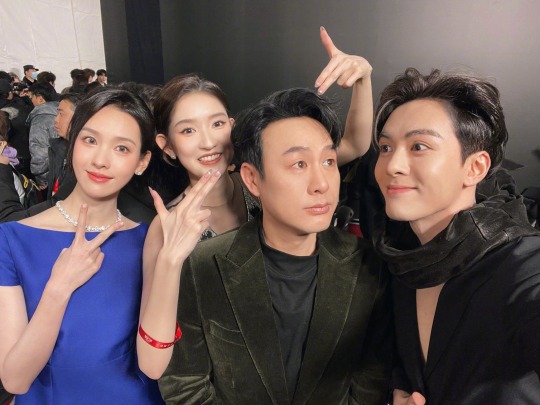
Zeng Shunxi shares new snaps as he reunites with A Lonely Hero's Journey costars Zhang Songwen, Chen Duling & Wang Yuwen at 2023 Weibo Night
4 notes
·
View notes
Photo
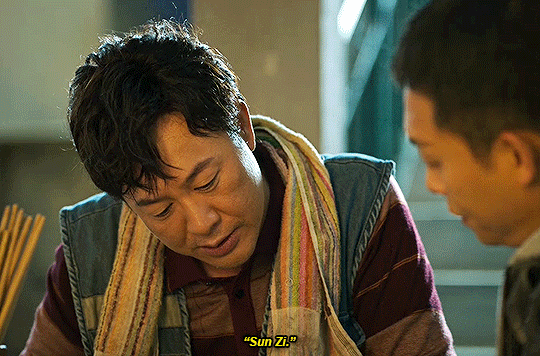
还有兵法,要连读。
*An Xin recommends that Gao Qiqiang read The Art of War (Sun Zi's Military Methods, 孙子兵法) and writes down the title for him. Gao Qiqiang reads only the first two characters, which literally translates to "grandson", but is often used as a derogatory term similar to "bastard".
17 notes
·
View notes
Text
Kuang biao
Kuang biao (Serie 2023)
#YiZhang #SongwenZhang #ZhijianZhang #GangWu #JianyiLi #ZhaoqiShi
Mehr auf:
Serie / 狂飙 / The Knockout Jahr: 2023-
Genre: Krimi / Drama
Hauptrollen: Yi Zhang, Songwen Zhang, Zhijian Zhang, Gang Wu, Jianyi Li, Zhaoqi Shi, Danping Shen, Jian Li, Jiachuan Lin, Da-zhi Bao, Yan Sun, Zhigang Cui, Fuzhen Kang …
Serienbeschreibung: Die Serie konzentriert sich auf die kriminelle Welt von Jinghai und ihren Zusammenbruch während einer Untersuchung…

View On WordPress
0 notes